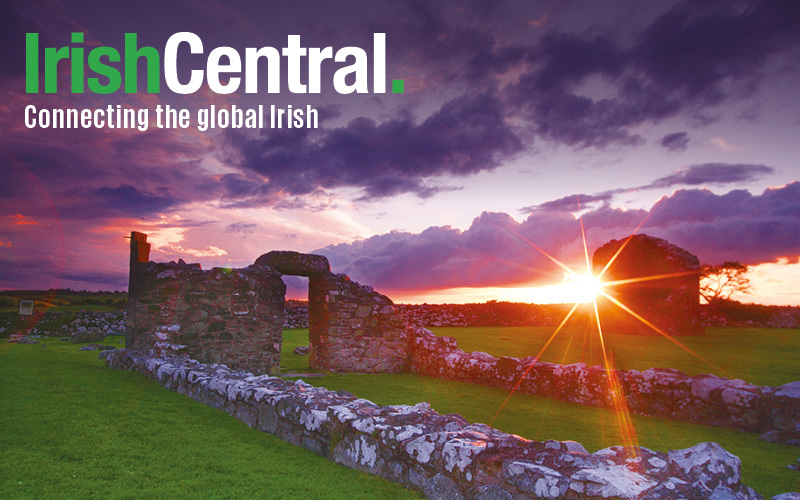As Ireland finds itself as the stuffing in the least desirable sandwich of the world, with Trump to the left and Brexit to the right, I cannot help but wonder what this means for younger generations. As a General Adult Psychiatrist, I have always marveled at the resilience of the young, their endless enthusiasm and their immature optimism, which seems to be suppressed as years and obstacles start piling upon them.
I remember distinctly the morning the Brexit result was announced. The sun was shining lazily over Dublin, a rare sighting all of us living here have come to cherish. It was as early as 7am when I spoke to my surgeon friend in Glasgow, close to my age, to share my astonishment. In her Celtic wisdom, she succinctly responded: “we are feeling uncertain, but a wee bit of uncertainty never killed anyone. The problem is we feel uncertain, but we are also afraid.”
The policies of fear that aimed at the vulnerabilities of the psyche certainly helped Trump and Brexit happen. How can any seasoned adult not fall prey for the promise of tightened security, of eradicating the ‘threat’ of the uninvited immigrants and terrorists, of closing our borders so we isolate our countries, our culture, our economy, and our lives, from the menaces of the outside? But the young are not so foolish.
Read More: Suddenly Ireland is the place to be if you're a Tump or Brexit refugee
A young mind is open to change, a young mind is permeable to experiences, is avid for a cultural clash, is eager to learn, is curious to explore. The young mind knows that one day we find ourselves owners of our land, and tomorrow we might be travelling somewhere, where we become the unexpected immigrants. The young mind knows that femicide and racist crimes are also terrorism, that frontiers are imaginary lines drawn on an imaginary map, and that it is better to be citizens of the world than presidents of our own problems.
“I voted yes to Brexit,” an English man in his late eighties proudly exclaimed on national television, “because I want my country to be the way it was.” Immediately, images of the Kings and Queens of the British Monarchy started paraded in my mind. Is that what this man, and the rest of the British population who voted to exit the European Union, crave? The stale guidelines and anachronistic splendour of a figurative Monarchy, now opaque and inoperant in a modern world of science, foreign politics and technology? Isn’t that a reflection of the selfishness than prevails in our Western World? The young vote undoubtedly failed. Are we making them more vulnerable, instead of empowering them with a strength that will carry them as the future of the world?
A politics students from University College Dublin (UCD), born and bred in Northern Ireland, glumly said to me last week: “thank God Dublin is close to Belfast, I might have to move back home to finish my degree with Brexit.” I shared my sympathies with her, she had just turned 20 years old, and I, being 8 years older than her, felt small and puzzled. Another student from UCD, also 20 and studying law, asked me how Trump and Brexit would affect Argentina, my home country. I laughed his question off, “we have bigger problems down there, dear.” He nodded, and silenced me with a statement I failed to retort, “well, we have bigger problems up here in Ireland too.” He was probably referring to the 2500 homeless children plaguing the streets, or the recent plea from First Aid Ireland not “abandon your drunken friends”, since they are at risk of hypothermia, coma and death. Huge problems indeed.
Read More: Report details permanent damage Brexit would do to Ireland
The burden of alcoholism and heroin consumption in adolescents do not surprise me. The latest HSE reports show that 35% of all psychiatric admissions were aged 17 years on admission, 33% were aged 16 years, 13% were aged 15 years, 11% were aged 14 years and a further 7% were aged 11–13 years (HRB.ie). Similar proportions were observed for first admissions. 57% of all admissions and of first admissions in child and adolescent units were female, a clear sign of the increase of Borderline Personality Disorder in young females in Ireland, presenting with depressive symptoms and eating disorders.
The figures don’t shock me. Even before the votes of the latest election were counted in the United States, phone calls and texts were pouring into suicide hotlines and crisis networks in record numbers. Americans, especially young and from the LGBT communities, were crying for help in desperation. This fact doesn’t shock me; the Irish mental health figures don’t shock me. Maybe they should, but they don’t, because our minds and their bodies echo with frustration, pain, and suffering, when their speaking voices are unheard.
When I find myself overwhelmed by my own thoughts, I empty them on paper, my own therapeutic escape to dispel anxiety and hopelessness. I recently wrote my first novel, “Lucy in the Skye”, the raw, complex, honest story of a young Irish American (and a little Argentinean) woman, trying to battle her way through womanhood and independence, while she struggles with her own crumbling mental health and the stigma it entails. In the words of Lucy Skye: “…pain, sometimes, is the only thing that reminds us we are still alive.”
---
Dr. Carolina Giacobone, MD is a General Adult Psychiatrist and CBT Psychotherapist. More about "Lucy in the Skye" here.




Comments